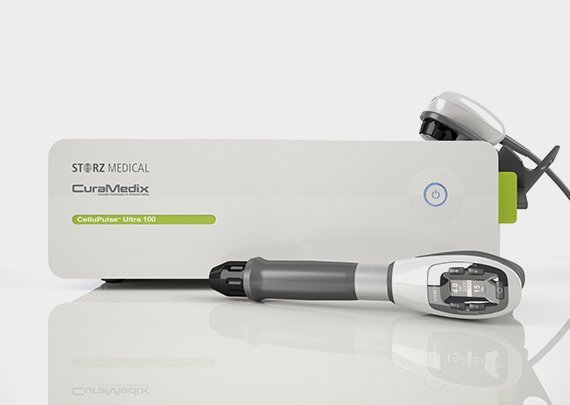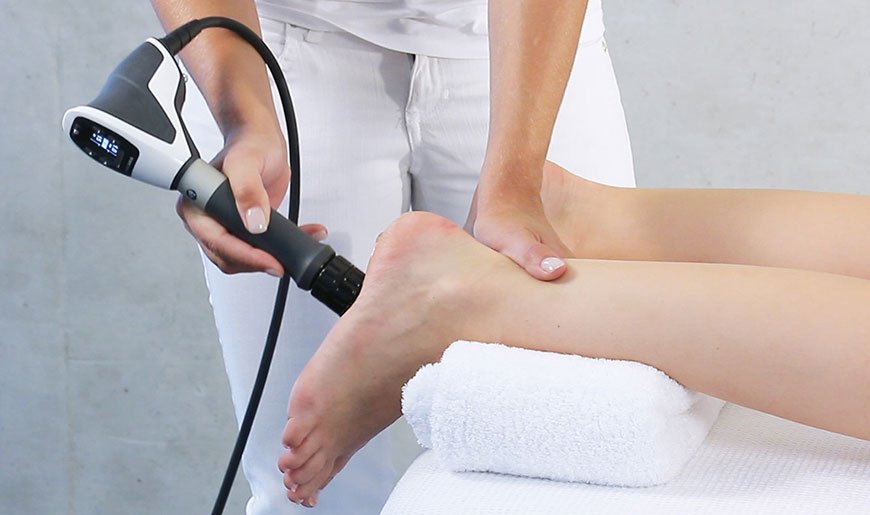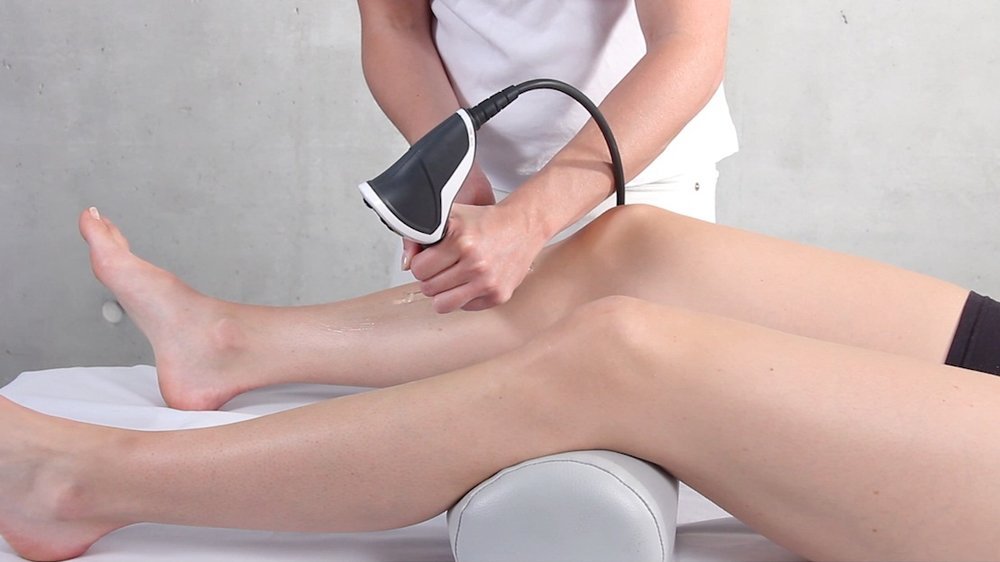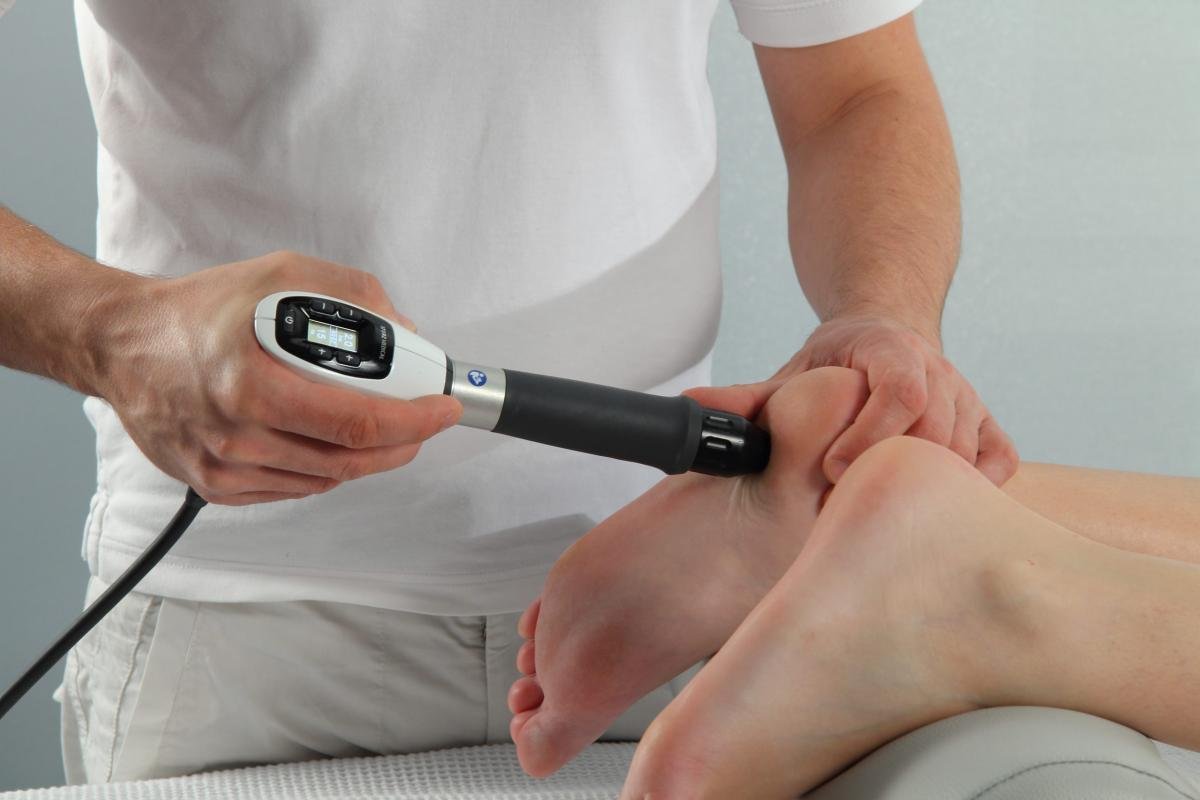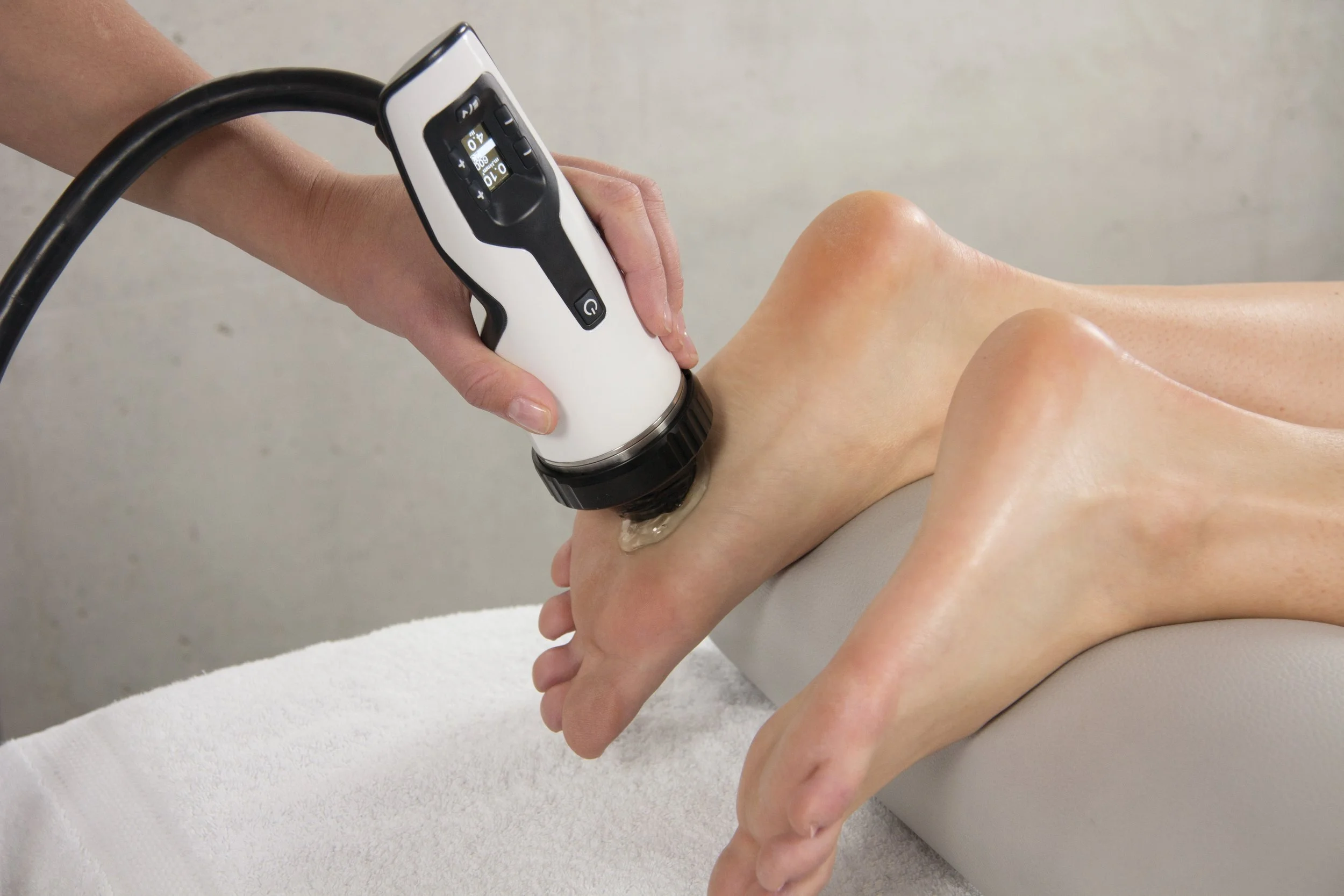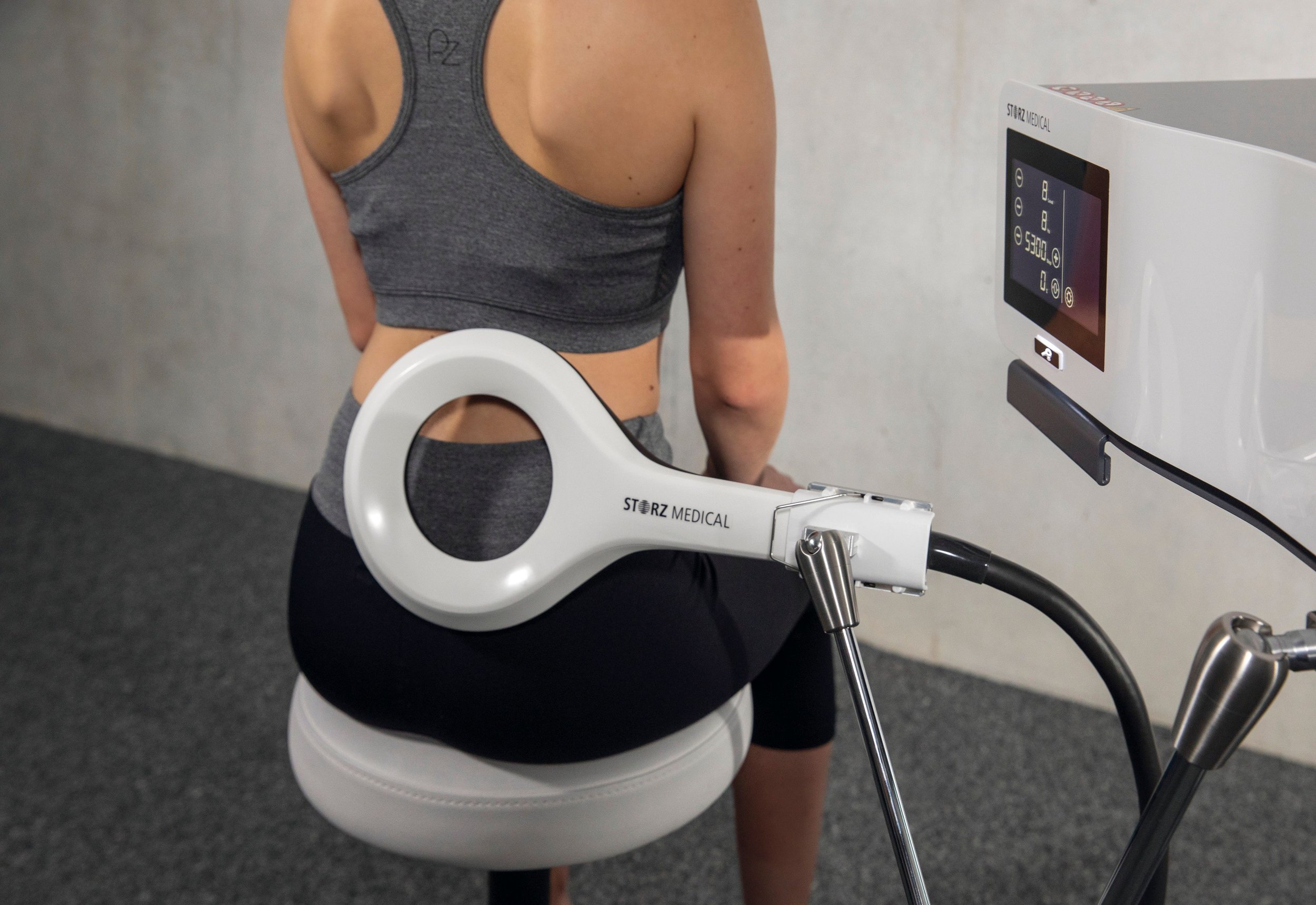Shockwave Therapy & EMTT
*
Shockwave Therapy & EMTT *
Shockwave Therapy -
EPAT & ESWT
We have a new treatment for muscle and joint pain that will make you feel better fast. It's not invasive and works for both short-term and long-term pain. Shockwave Therapy (ESWT®) is an advanced technology that uses special sound waves to help certain conditions. ESWT helps to improve regeneration instead of causing more damage to areas that have degenerated due to poor blood flow, tissue injury, overuse, or weakness. You only need three ten-minute sessions per week to get back to your favorite sport or activity, and there's no downtime. We utilize both kinds of shockwave therapy, EPAT, which is radial and goes through the skin, and ESWT, which is a focused beam that penetrates below the skin’s surface, creating the best treatment outcomes for our patients.
Find out how you can be pain-free.
ESWT: Let’s talk about the benefits:
Evidence-based
Non-invasive
No downtime
Over 80% patient satisfaction
Cost effective
Faster, easier healing
What is Shockwave Therapy?
Extracorporeal Pulse Activation Technology (EPAT), also known as shockwave therapy, is a safe and powerful treatment approved by the FDA. This method uses special waves to improve metabolism, increase blood flow, and speed up healing.
What disorders can be treated?
Generally, acute or chronic musculoskeletal pain and/or pain that significantly impairs mobility or quality of life including:
Lower Extremity:
Plantar Fasciitis: Pain in the heel and arch of the foot.
Achilles Tendinopathy: Pain and inflammation in the Achilles tendon.
Patellar Tendinopathy (Jumper's Knee): Pain in the kneecap tendon.
Hamstring Tendinopathy: Pain in the hamstring tendons.
Medial Tibial Stress Syndrome (Shin Splints): Pain along the shinbone.
Morton's Neuroma: Thickening of a nerve in the foot.
Retrocalcaneal Bursitis: Inflammation of the bursa behind the heel.
Upper Extremity:
Tennis Elbow (Lateral Epicondylitis): Pain on the outside of the elbow.
Golfer's Elbow (Medial Epicondylitis): Pain on the inside of the elbow.
Rotator Cuff Injuries: Tears or inflammation of the rotator cuff muscles and tendons in the shoulder.
Calcific Tendonitis: Calcium deposits in the tendons, often in the shoulder.
Other Conditions:
Stress Fractures: Small cracks in bones.
Osteoarthritis/Joint Pain: Pain and stiffness in joints.
Scar Tissue: Can be broken down by shockwave therapy.
Trigger Points: Areas of muscle pain and tenderness.
Hip Pain: Including gluteal muscle strains, bursitis, and hip flexor tendinosis.
Spinal Pain: Acute and chronic muscular pain in cervical and lumbar spine regions.
What are the expected results?
Patients may feel better right away, but it can take up to four weeks for pain relief to start. The treatment gets rid of pain, helps you move better, and makes your life better. More than 80% of patients say they have no pain or much less pain after treatment.
What is the duration of the treatment and how many treatments will I need?
Treatment sessions usually last 15-20 minutes, depending on the condition being treated. Typically, you will need at least 3 sessions, spaced one week apart.
What if I have a special health condition?
The safety and effectiveness of the ESWT procedure have not been established for people with certain health conditions. Your doctor will inform you how these conditions and others may impact the decision to perform the ESWT procedure.
Malignancies
DVT (Deep Vein Thrombosis)
Pregnancy
Want to learn more about Shockwave Therapy and how it can benefit you? Get in touch with us!
Learn More About Shockwave Therapy
EMTT - Extracorporeal Magnetic Transduction Therapy
What are the expected results?
Extracorporal Magnetotransduction Therapy (EMTT®) uses powerful magnetic pulses on the affected areas of the body. Many patients experience significant symptom improvement or even freedom from pain after a few sessions.
Is it safe?
Yes, this FDA-approved technology was developed in Europe and is used worldwide. EMTT® devices are carefully designed and tested for safety and effectiveness. When performed by a qualified caregiver, EMTT® has minimal risks or side effects.
How long is the treatment and how many sessions do I need?
Each treatment session lasts about 15-20 minutes, depending on the specific condition. In general, patients undergo a total of 8 treatment sessions, twice a week.
EMTT Indications
Musculoskeletal disorders:
Degenerative joint disorders
Wear and tear conditions such as osteoarthritis (knees, hips, hands, shoulders, elbows), herniated discs, spondylarthrosisPain treatment
(Chronic) pain, for example, back pain, lumbago, tension, radiculopathySports injuries
(Chronic) inflammation of tendons and joints, tendon overuse syndromes, inflammation of the pubic bone
MAGNETOLITH Parameters:
Benefits:
Evidence-based
Non-invasive
Wide range of applications
Outpatient procedure
Non-Touch
No Side Effects
EMTT, a painless game changer
Studies:
--- The evolving use of extracorporeal shock wave therapy in managing musculoskeletal and neurological diagnoses: https://www.mayoclinic.org/medical-professionals/physical-medicine-rehabilitation/news/the-evolving-use-of-extracorporeal-shock-wave-therapy-in-managing-musculoskeletal-and-neurological-diagnoses/mac-20527246
--- The use of shock waves in peripheral nerve regeneration: new perspectives?: https://pubmed.ncbi.nlm.nih.gov/24093607/.
Spacca G, et al. Radial shock wave therapy for lateral epicondylitis: A prospective randomised controlled single-blind study. Europa Medicophysica. 2005;41:17.
Guo P, et al. Positive effects of extracorporeal shock wave therapy on spasticity in poststroke patients: A meta-analysis. Journal of Stroke and Cerebrovascular Diseases. 2017;26:2470.
Marinelli L, et al. Effect of radial shock wave therapy on pain and muscle hypertonia: A double-blind study in patients with multiple sclerosis. Multiple Sclerosis Journal. 2015;2:622.
Wu Y-T, et al. Extracorporeal shock waves versus botulinum toxin type A in the treatment of poststroke upper limb spasticity: A randomized noninferiority trial. Archives of Physical Medicine and Rehabilitation. 2018;99:2143.
